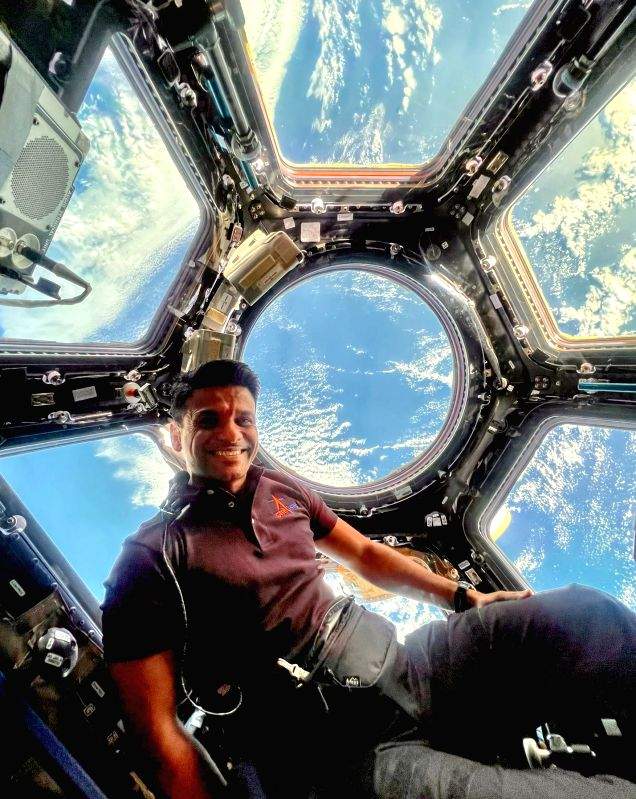Introduction
Axiom Mission 4 (Ax‑4) is the fourth private astronaut mission to the International Space Station, operated by Axiom Space in partnership with NASA and SpaceX. The Indian group captain Subhanshu Shukla is leading the mission at ISS (International Space Station). By getting the experience of this mission, India looks forward to their upcoming space missions (Gaganyan and Lunar mission). In this Ax-4 mission 31 nations collaborated and access the space based microgravity lab, which is the largest collaboration in the scientific community of world. This international team represents four countries, the USA, India, Poland, and Hungary. These Astronauts come from different backgrounds and are conducting 60 various scientific expAxiom Mission 4 (Ax‑4) is the fourth private astronaut mission to the International Space Station, operated by Axiom Space in partnership with NASA and SpaceX. The Indian group captain Subhanshu Shukla is leading the mission at ISS (International Space Station). By getting the experience of this mission, India looks forward to their upcoming space missions (Gaganyan and Lunar mission). In this Ax-4 mission 31 nations collaborated and access the space based microgravity lab, which is the largest collaboration in the scientific community of world. This international team represents four countries, the USA, India, Poland, and Hungary. These Astronauts come froeriments at the ISS, which will open new doors in various fields, including space biology, Health, Agriculture, and technology. We will also ensure food security, sustainable agribiotechnology, and play a leadership role in bioastronautics and astrobiology.
Space agriculture and food security
Microalgae: As space food
Microalgae are organisms known for producing oxygen, absorbing carbon dioxide, and providing dense nutrition efficiently. In the Space Microalgae experiment, Shukla will studied specially on, chlorella vulgaris, spirulina, and desmodesmus. To ensure these organisms grow and evolve in the absence of gravity. If successful, microalgae could become a sustainable food source for long-duration space missions. Their ability to support life-support systems may also open up possibilities for using them in Earth-based environmental and food solutions, especially in areas with limited access to resources.

